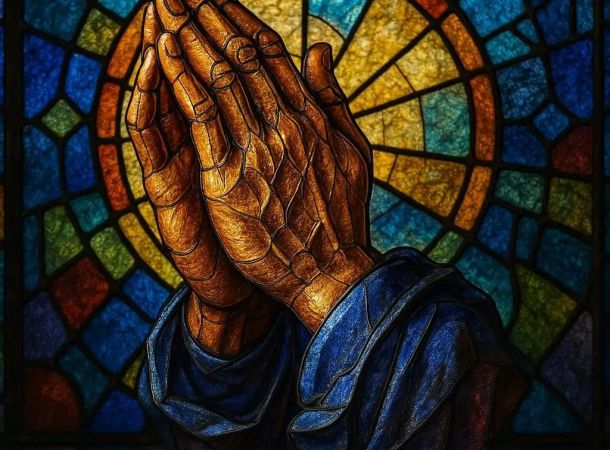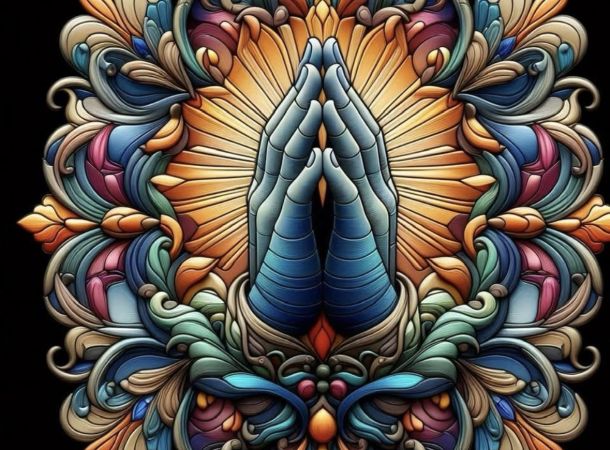Unrest
Vayak’hel, meaning “And he gathered,” can be explored in Exodus 35:1-38:20. This Torah Portion starts by giving instructions for the Shabbat. The Shabbat is one of the most essential appointed times we could understand. More than just a day of physical rest, the Shabbat is a time of spiritual rest, when we can enter a space where we are human beings, not human doings. It’s a time to pause, reflect, and connect with God. The enemy we can try to avoid is the endless pursuit of more, and Shabbat is a powerful antidote to this.
Exodus 35:2: “Work shall be done for six days, but the seventh day shall be a holy day for you, a Sabbath of rest to the LORD. Whoever does any work on it shall be put to death
Don’t worry, in the ANE when Israel was a theocratic government, death penalty was allowed but it is not allowed in any form, or for any reason today. What you can or cannot do on the Shabbat, or the seventh day of rest, differs for everyone. Some people do not push buttons, some do not look at their phones, some do not cook, and some do not create. In the first century, the corrupt elite often accused Yeshua of breaking the boundaries of Shabbat. Let’s explore the Shabbat and determine if Yeshua did what they say He did.
The first mention of Shabbat is in Exodus 5:5 when Pharaoh is upset that Moses suggested that the Israelites REST from their labor. This example shows us that oppression causes relentless labor without rest. When a ruling body does not allow the subjects to rest, the land, the animals, and the people suffer. When we want to pursue more, we make others engage in an endless cycle of work, even the land and animals God created for cycles of work and rest. Everything in creation shows a cycle of rest, repair, and production.
Deuteronomy 5:14: But the seventh day is the Sabbath of the Lord your God. In it, you shall do no work: you, nor your son, nor your daughter, nor your male servant, nor your female servant, nor your ox, nor your donkey, nor any of your cattle, nor your stranger who is within your gates, that your male servant and your female servant may rest as well as you.
The next understanding we should have about the Shabbat is that it is something that a good leader or king leads the subjects of his kingdom into. Remember that these scriptures speak of an Ancient Near Eastern worldview. On the seventh day, the Creator finished, or completed, building a house or a kingdom, filling it, and setting a king on the throne to maintain order and peace in that kingdom. Adam was the first king God charged with this tall order when He gave Adam and Chavah dominion over creation. The warrior king would have to defeat enemies to maintain shalom in the kingdom. Enemies of a kingdom include other rulers and their armies, internal disorder, and rebellions. With every new beginning in the Bible, you can find the king of Israel leading them into chaos or peace, prosperity or famine, safety or slavery. A good king, then, allows the subjects of his kingdom to rest, which looks like possessing and settling in the land of inheritance, dwelling in safety, enjoying the land, and not being afraid.
Job 11:17-19: And your life would be brighter than noonday. Though you were dark, you would be like the morning. And you would be secure because there is hope. Yes, you would dig around you and take your rest in safety. You would also lie down, and no one would make you afraid. Yes, many would court your favor.
Another important observation about the Shabbat is that it resembles a boundary. As if God is telling humanity, Look, I give you six days to pursue wealth and build your life; all I ask is that you give Me this day to refresh you, to be still, and revel in what I have provided for you. Shabbat serves as a boundary, a clear line between work and rest, reminding us to take a break and appreciate the blessings in our lives. In Exodus 16:29, Moses commands the Israelites not to move from their place, as in, do not pierce this boundary on the Shabbat.
Exodus 16:29: See! For the LORD has given you the Sabbath; therefore He gives you on the sixth day bread for two days. Let every man remain in his place; let no man go out of his place on the seventh day.
Hebrews 4:10: For the one who has entered God’s rest has also ceased from his own work, just as God did from His.
My favorite aspect of Shabbat is the personal, emotional, mental, and spiritual rest it offers from sorrow, struggle, fear, and addiction or bondage. One day a week, I lay down my burdens and breathe. God fills my tank, and His word and Presence refresh me. All I have to do is be still and enter into the finished work of the Holy One. I don’t have to be afraid because God is my safety, and if I am addicted to the pursuit of the things in life, for one day, I rule over that addiction and stay quiet. Shabbat is a gift that brings personal value and care.
Isaiah 14:3: It shall come to pass in the day the Lord gives you rest from your sorrow and from your fear and the hard bondage in which you were made to serve.
Jeremiah 6:16: Thus says the Lord, “Stand in the ways and see, and ask for the old paths, where the good way is, and walk in it; Then, you will find rest for your souls.” But they said, “We will not walk in it.”
The Spirit of the LORD caused the Israelites to rest in Isaiah 63:14. We can rest in hope, as it says in Acts 2:26. Waiting patiently for the Lord causes us to rest in Psalm 37:7, and we can rest in His perfect love that helps us not be afraid. Abiding in the Presence of the Holy One enables us to rest. Stay connected to the One who allows us to exhale and let go of the weight of life.
Psalm 16:9: Therefore my heart is glad, and my glory rejoices; My flesh also will rest in hope.
Zephaniah 3:17: The Lord your God in your midst, the Mighty One, will save; He will rejoice over you with gladness, He will quiet you (cause you to be still) with His love, He will rejoice over you with singing.
1 John 4:18: There is no fear in love, but perfect love drives out fear. For fear has to do with punishment, and the one who fears has not been made perfect in love.
Shabbat was given to humanity to help us bear the heaviness of life. It is not for God, it is for humans. It provides us with reprieve and restores us to wholeness. The thing is that we do not take advantage of this gift. We can’t stop working, consuming, building, expanding, gaining, growing, and doing everything. When we first started learning about the instructions given in the Bible, honoring the Shabbat was one of the hardest changes to make. It is counteractive to our world, which is constantly pushing us forward. Do more. Be more. Yet, the Creator of all the universe gives us a day to revel in the beauty He has surrounded us with, to bask in the knowledge that Yeshua defeated all of our enemies of death, sin, and struggle. We don’t have to be afraid. He is asking us to exist in a space of delight. To delight in the Shabbat, we need to enjoy it, take advantage of it, bask in it, and enter into the fullness the day offers. Notice that the instructions of Shabbat are at the very beginning of this Torah Portion before it goes into detail on building the furniture of the Tabernacle. It is not the leftovers of the week. It is the foundation we lay before going into the world to accomplish work. It is the calm before the storm. It is the fill-up before hitting the highway.
Isaiah 58:13: “If you turn away your foot from the Sabbath, from doing your pleasure on My holy day, and call the Sabbath a delight, the holy day of the Lord honorable, and shall honor Him, not doing your own ways, nor finding your own pleasure, nor speaking your own words.
The job of a Redeemer is to disquiet the enemy and bring quiet to the people who trust in him. Yeshua is the Lord or Master of the Shabbat. He leads us into that Shalom where our souls can rest because He finished the work of overcoming the world. When He healed the lady with the bent back on Shabbat, He gave her rest. When Yeshua healed the man with a withered hand on Shabbat, He made him whole and complete, which is the work of the Shabbat. He showed us what proper rest comes from: being whole and needing nothing. While hanging on a tree and dying, Yeshua said, “It is finished.” It is on the seventh day that God finished His work of building a dwelling or world; Moses finished building the Tabernacle (Ex 40.33), Solomon finished building the Temple (1 Kg 6.14), and the Israelites finished building the second Temple (Ez 6.15). Yeshua finished building the Kingdom or House of God. All we have to do is abide in that prepared space where His word and Presence exist.
Jeremiah 50:34: Their Redeemer is strong; The Lord of hosts is His name. He will thoroughly plead their case, that He may give rest to the land, and disquiet the inhabitants of Babylon.
Matthew 11:28: Come to Me, all you who labor and are heavy laden, and I will give you rest.
Yeshua gives us rest because He has prepared a safe place for us to trust in His goodness, faithfulness, provision, and perfect love. The Shabbat is His gift to us so we can delight in family, friends, food, nature, the weather, conversation, nap time, and the absolute, fantastic joy of being.




Leave a Reply